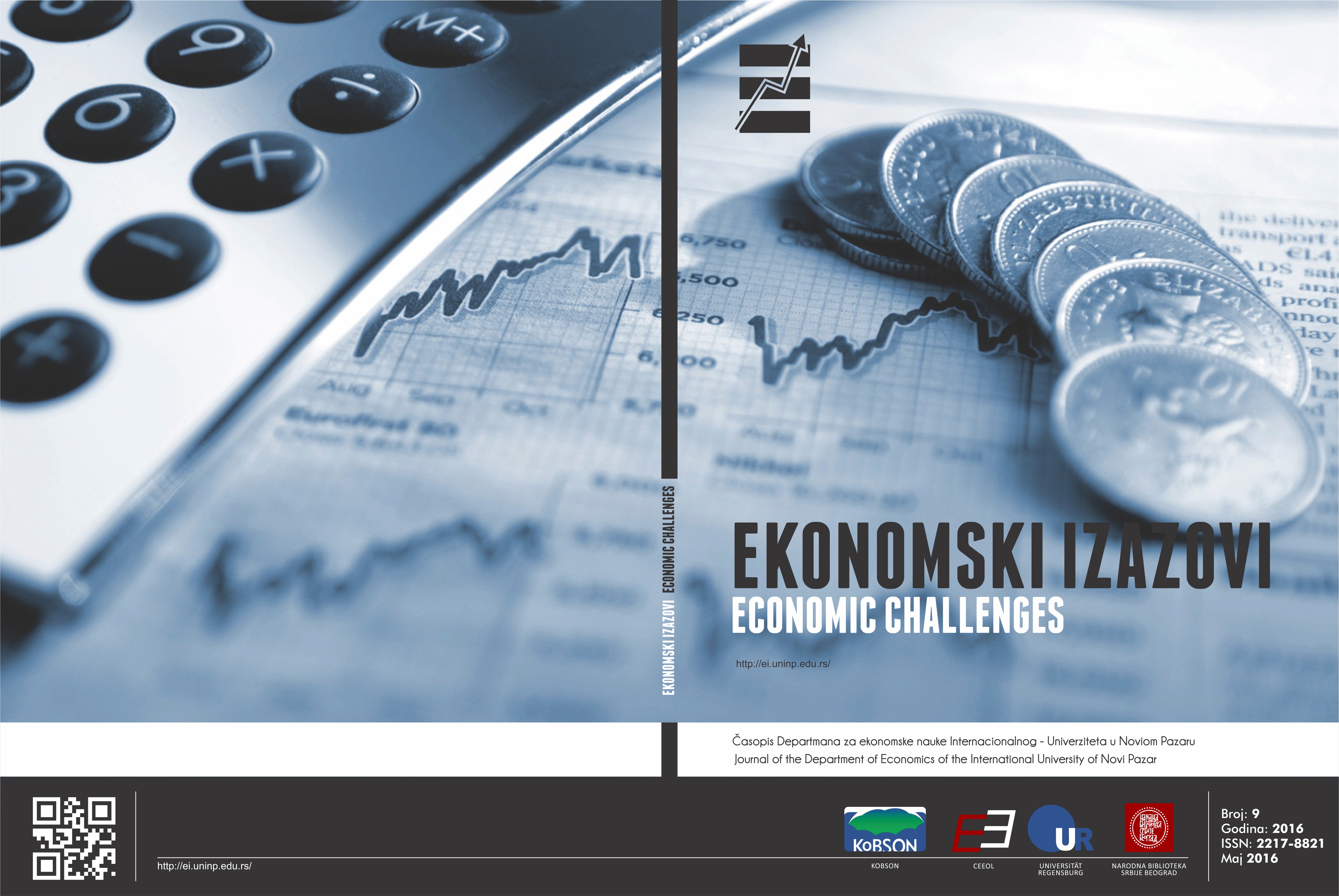KONCEPCIJA PORESKE HARMONIZACIJE I PORESKE KONKURENCIJE U DRŽAVAMA ČLANICAMA EVROPSKE UNIJE
THE CONCEPT OF TAX HARMONIZATION AND TAX COMPETITION IN EU MEMBER COUNTRIES
Author(s): Suad Bećirović, Mirza TotićSubject(s): Economy, Public Finances
Published by: Интернационални Универзитет у Новом Пазару
Keywords: Fiscal federalism; tax harmonization; tax competition; indirect taxes; direct taxes;
Summary/Abstract: The aim of this paper is to offer a review of current issues related to fiscal federalism, tax competition, tax harmonization and used approaches for their definition. With regard to tax harmonization and tax competition affirmative or negation arguments for and against these two terms have to be analysed. The establishment of a single (common) market was the primary goal made in the first half of the twentieth century by the most developed European countries, which wanted to prove they have had very serious thoughts about implementing all kinds of integration. Common Market is designed to fit the international institute based on the four pillar structure known as the "four essential freedoms" - a smooth flow of services, people, capital and information. Even today we have a wide open debate, whether to harmonize the tax treatment of business activities in the EU member countries, or just to enable the mutual competition between national tax systems. The implementation of harmonization and competition in the fiscal systems of some European Union countries was marked by concrete initiatives. They mainly related to harmonization of direct and indirect taxes, tax bases and tax rates. Tax harmonization began with signing the Treaty of Rome (1957), followed by the foundation of different bodies, commissions and/or committees for preparing and presenting the reports related to fiscal harmonization and fiscal competition within the European Community. Most of these reports did not meet expectations and, according to the opinion of experts from several EU member states, they should have been used as an important material for future scientific research, rather than information on fiscal harmonization.
Journal: Ekonomski izazovi
- Issue Year: 2016
- Issue No: 09
- Page Range: 25-43
- Page Count: 19
- Language: Bosnian

